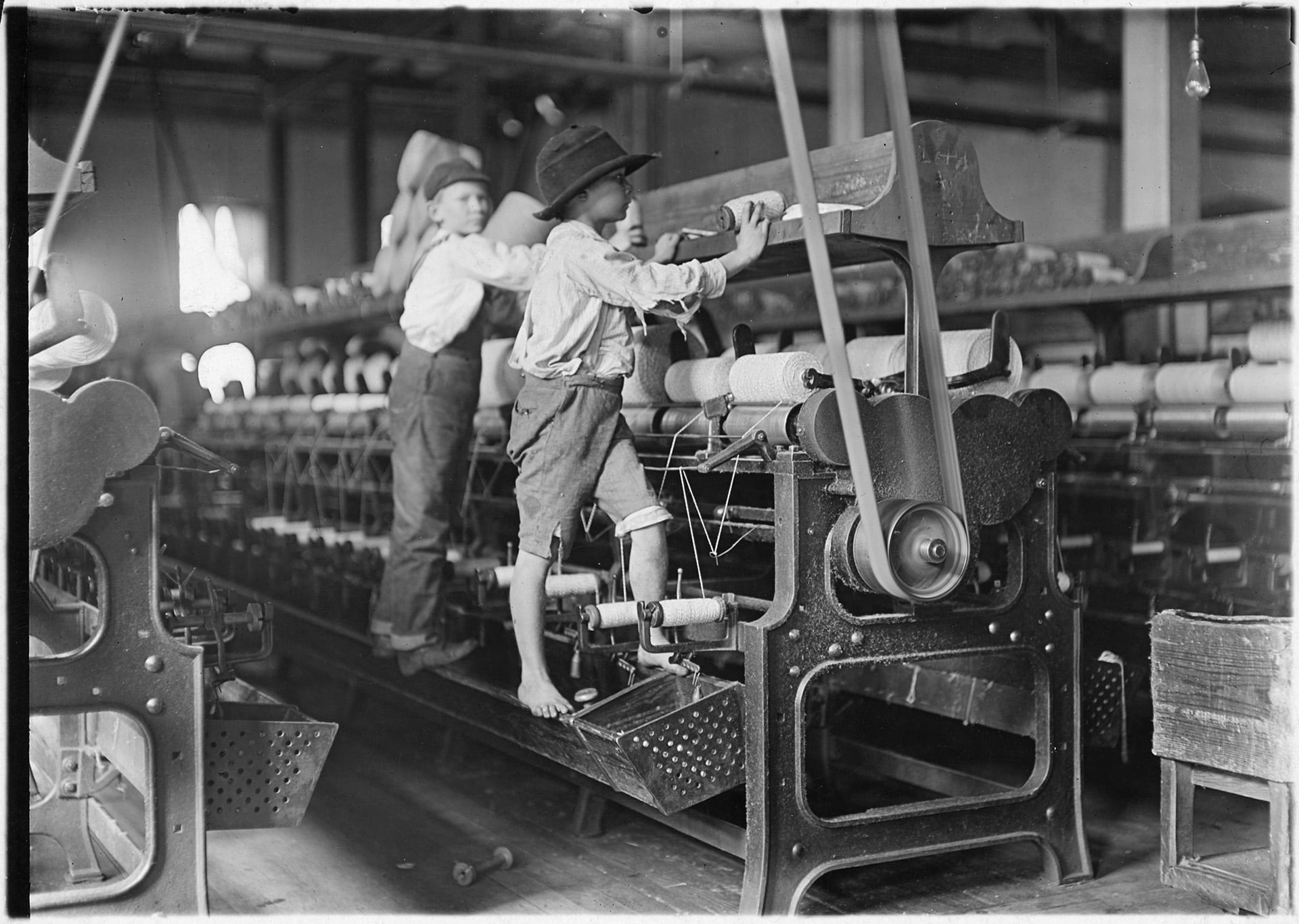
Labor shortages are pushing companies into increased automation, which we’d say is a good thing. But we are also seeing increasing child labor violations in the United States, which is clearly a very bad thing. In 2021, the Department of Labor found 2,819 cases of children employed illegally, fining companies nearly $3.4 million.
They’ve seen an increase recently, and are watching particularly during the summer months, when many teenagers go out to work. Manufacturing is one of the industries in which violations are often seen in physically hazardous jobs.
One case that made headlines was in a Hyundai factory in Alabama, where children as young as 12 were working on the metal stamping line. These children were working during school hours instead of going to school.
History of child labor
Children often worked in factories during the 19th and 20th centuries. Public education was often not available and poor families needed every penny they could scrape together. In 1900, 18% of U.S. workers were under 16. Children could be paid less, were small enough to work in small spaces, and were less likely to join unions.
In a country where kids were used to working on family farms, it might not have seemed like too much of a jump to begin working in factories. However, it prevented kids from getting an education and trapped families in generational poverty. The practice also endangered children’s health and safety.
In the 1930s, after decades of struggle, strong child labor laws finally were enacted. Children under 16 are generally not allowed to work in manufacturing at all. Kids from 16-18 are not allowed to work in hazardous occupations.
Why is it still happening?
In the Hyundai case, which took place at a subsidiary of Hyundai, the company blamed what seems to have been a longstanding practice of employing children on the temporary staffing company they worked with.
Observers claim that employers sometimes take advantage of migrant families, especially undocumented families, employing children whose parents are financially desperate and unwilling to complain to authorities.
Manufacturers should look through their entire supply chains, not only in the United States, to ensure that no child labor is being used in production of any assets. Consumers can reduce the likelihood of child labor and slavery by refusing to buy products from companies that won’t take this step.
